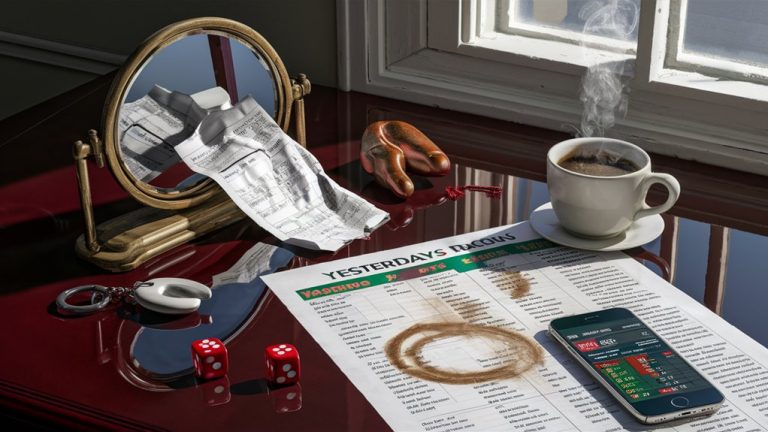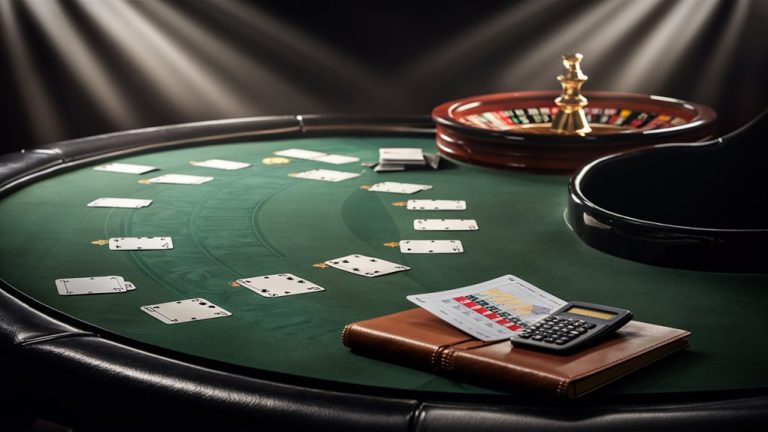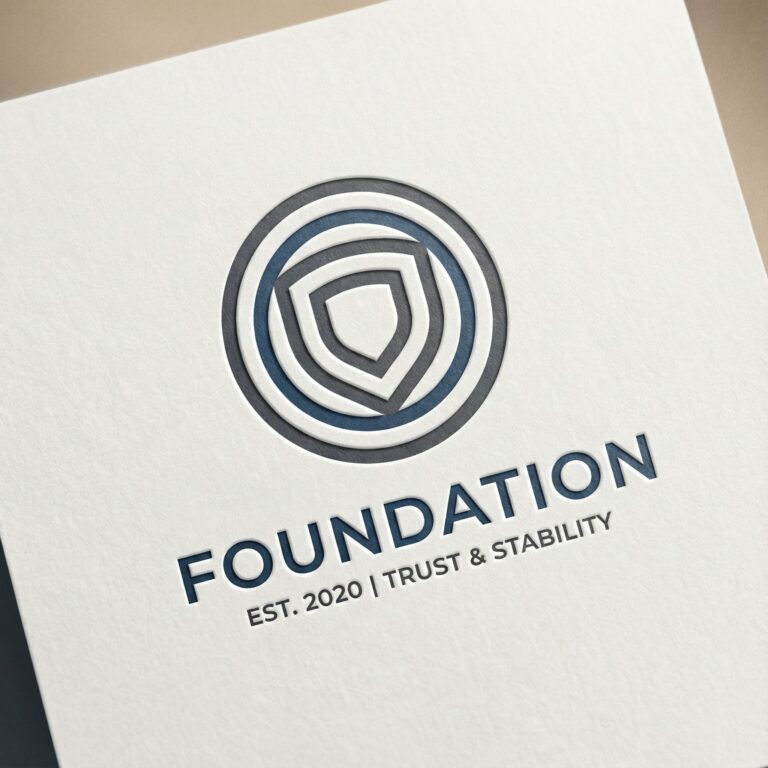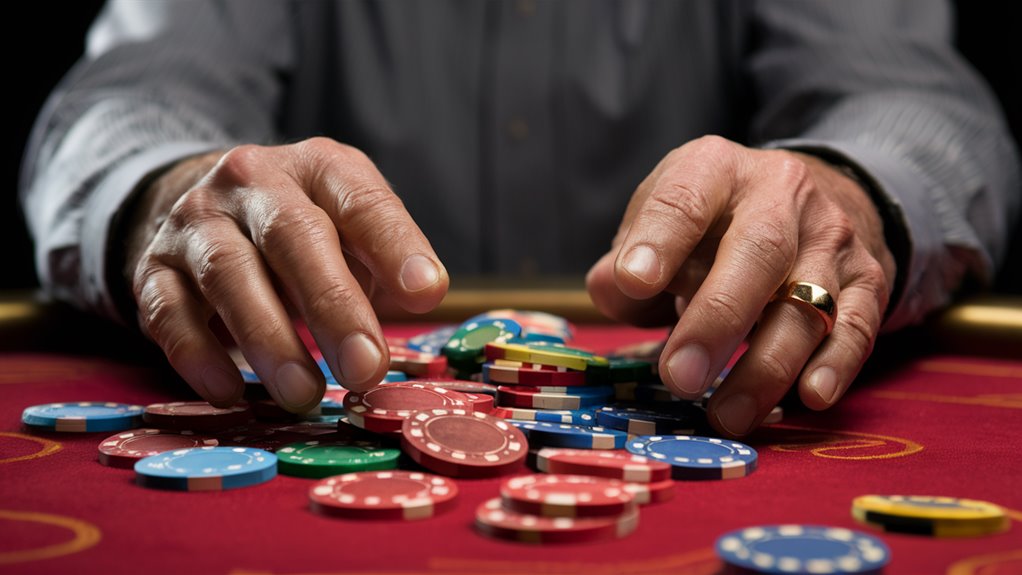
Why Do People Gamble? A Simple Look
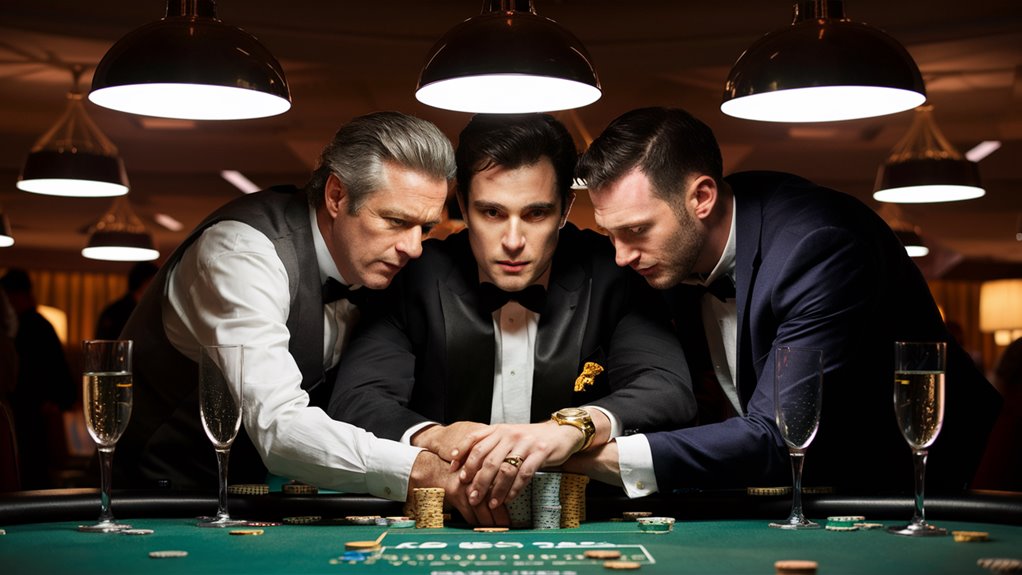
What Happens in the Brain
Dopamine is key in gambling addiction, as it kicks in during both wins and losses. This brain reaction makes a strong reward loop that backs the act of gambling no matter what happens. The brain starts to change during these acts, feeling much like other addictions.
Thoughts and Choices
Thinking mistakes play a big role in gambling acts; ideas like feeling in control and the effect of almost winning matter a lot. Players often think they can change what happens by chance, while near-wins make them feel very close to winning, making them want to keep going. These mind tricks start a hard cycle of play even if they keep losing.
Genes and Where You Are
Studies show genes are half of why people might gamble. This root cause, along with places and learned acts, makes a tough mix that drives gambling acts. What people around us do and seeing it as normal just backs these acts, making it hard for some to stop. 신뢰할수 있는 리뷰보기
Deep Look at Gambling Minds
The mix of how our brain works, mind tricks, and genes build a very strong brain setup for gambling acts. Seeing these base works tells us why people can’t stop gambling even when they know the odds are bad. This deep view helps make plans to help people.
The Brain and Rewards
Dopamine is key in the big effect gambling has on the brain’s reward zone. When gambling, the brain sees possible wins, making this key part give off good and fun feelings. Even when people lose, this part still works in a way by bits of wins, keeping the act going.
Old Roots and Now
The reward zone grew long ago to help our old selves live better. But, gambling uses this old brain work for itself. Brain paths made by gambling grow with each win, and losing doesn’t really hurt this path much. This helps show why gambling is so addicting, beyond just wanting money.
Brain Acts and Rewards
Studies show the brain doesn’t really know the difference between real rewards and fake ones from gambling. Unknown wins make more dopamine than sure things, showing why gambling feels more fun than sure money. This strong brain act makes gambling pull in people, more so those who already tend to look for rewards.
What Makes Gambling Stick in the brain
- Dopamine release when looking forward to something
- Pattern of bits of wins
- Brain paths getting strong
- Big feeling of maybe winning
- Genes that make one likely to seek rewards
Running from Daily Stress
Using Gambling to Hide from Daily Stress
The Mind and Running Away in Gambling
Stress pushing gambling has become a big way people deal with too much pressure in life. People look to hide from work stress, problems in personal lives, and too much life mess through gambling. Research shows gambling makes an escape mind state where players feel a break from their non-stop worries.
Brain Changes in Running Away Through Gambling
In gambling times, the brain goes through big changes, letting out endorphins and dopamine, creating a strong natural high. This brain act covers up the deep stress, giving a short break from life’s heavy load. The brain’s reward setup that turns on in gambling makes a strong pull to escape that can quickly become a regular need.
Right Now vs. Later
Choosing to gamble as an escape starts a cycle of short peace followed by more problems. While betting might block sad thoughts for a while, losing money can make stress and worry worse. This keeps the cycle going, making a person gamble more often.
Addiction and Needing More
Long-term running away through gambling is much like other addictions in how it gets worse. Players often need more and bigger gambling times to feel the escape they want. This mind need shows why they keep gambling even as they lose money; it turns into about feeling good, not just winning money.
People and Being Seen
Being with Others and Seen in Gambling
How We Mix in Gambling Places
Places to gamble set up strong groups where people make real ties. These gambling spots work like new town squares, helping those feeling alone. Old-time gambling spots give a set place where people share fun, win together, and make lasting ties from what they all like.
Being Someone in Gambling Groups
Wanting to be seen as someone matters a lot in how people gamble across different ways to play. Big-time gambling and special spots are signs of being someone in these circles. Players chase games where they can show they are good, like in poker, to show skill and get nods from others, keeping them in the game far beyond just making money.
Brain and Being with Others
Rewards from being with others in gambling light up the brain’s reward zones just like gambling does. New web gambling spots have grown to bring in how we are with others, with:
- Talking back and forth in games
- Playing with or against others
- Big group games
- Real-time game leaders
These friend elements mix old game fun with real ties, keeping players in through many mind ways.
Mind Tricks of Feeling in Control
Mind Games of Feeling in Control in Gambling
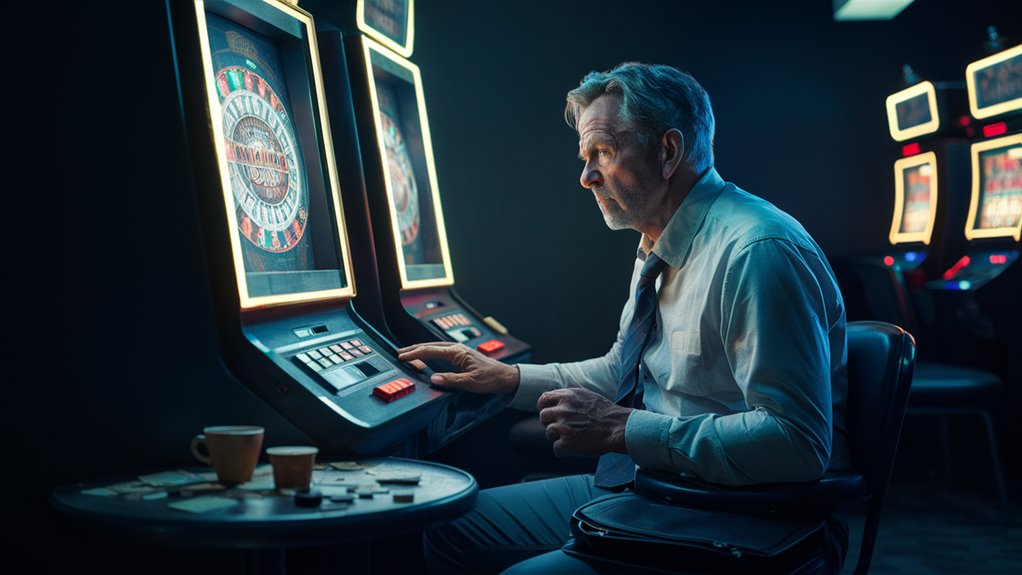
How We Trick Ourselves in Gambling Acts
Mind tricks and the feeling of being in control are key reasons people keep gambling. Players often truly think they can change what is by chance, hooking them deep into gambling. This shows up when players blow on dice, pick certain slot games, or use tricky bet plans. Studies show these acts make players feel better about winning, even though they don’t change the real odds.
How Casinos Keep You In
The look of casinos and how games work aim to keep these feelings of control. Almost winning on slot machines, putting skill tasks in luck games, and choosing numbers in lotto games make players feel they do something real. Studies show when people think they control what happens, they bet more and take bigger risks.
What We Recall Changes How We Bet
The mix of keeping some memories and not others and feeling in control makes a truly bad setup in gambling. Players really remember wins and brush off losses as just bumps. This mind trick, with the made-up feeling of control, makes a strong brain setup that keeps gambling going even as money problems grow. Seeing how these mind acts work is key to dealing with bad gambling ways and making good plans to help.
Going After Losses and Almost Wins
Getting Into Gambling Minds: Chasing What’s Lost and Almost Wins
The Mind Behind Chasing Losses
Chasing losses is a bad pattern in gambling, where players bet more and take bigger risks to try to get back lost money. This fast cycle can eat up money and make gambling problems worse.
The Almost Win Draw
Almost wins tie to strong mind pulls in gambling. These near-wins let out dopamine much like real wins and make players keep going despite losing more and more. The brain sees these close ones as partly wins, making a strong pull of near winning soon.
Why Casinos Do What They Do
Casinos set up almost win bits in their games on purpose. Key ways are:
- Slot games showing win signs near lines to win
- Card games that start with good-looking hands
- Lotto games with numbers just off winning ones
Studies show almost winning in gambling lights up reward paths in the brain, like:
- More dopamine
- More work in the reward brain parts
- More emotional upswing
- Stronger push to keep gambling
How to Break Out
Seeing these mind pulls helps in careful gambling:
- Know almost wins are made
- See chasing losses as bad
- Set strong money limits before playing
- Stay aware of casino tricks
Genes and Where You Are
Genes and Places in Gambling Acts
Genes Pushing Gambling
Studies show acts of gambling grow from a mix of born traits and where you are. Research with twins hints that genes make up about half of why people might gamble, coming from parts that guide dopamine and how the brain handles rewards.
How Being Around Things Changes Us
Seeing gambling young through family shows a big pull on what comes later. Research finds kids with parents who gamble are three times more likely to gamble too. Main things around us that shape this are:
- Money status
- What friends do
- What people around think of it
- How easy it is to gamble
How Both Work Together
Weak spots in genes with things around us make a bigger risk for bad gambling acts. Main parts in this are:
Harm and Hard Times
Tough times when young and deep stress can start gambling acts in those with the genes for it.
Being Near Changes Risks
Being close to places to gamble and web bet spots bumps up risk, more so for those with the genes for it.
Risk Growing
The mix of genes for it and things around us sets up the best spot for gambling acts to grow, showing why some react to gambling in different ways. This deep look at both the born parts and what’s around helps show why some get into bad gambling acts while others just play for fun without bad sides.
How Culture Changes Gambling Acts
How Culture Shapes Gambling: A Look Around the World
Culture and Old Gambling Ways
Culture’s view of gambling shows big changes depending on where you are, deeply shaping how people bet and take risks. Old gambling ways show up very different around the world, with some places seeing it as key to being with others while some say no to it.
Beliefs and Being with Others
What we believe sets how often people gamble around the world:
- Places with Protestant ways often gamble less
- Catholic spots tend to say yes to gambling more
- Islamic spots mostly say no to gambling
- Asian ways often mix gambling into big parties
How Gambling Looks Now
New Looks in Western Spots and Web Changes
Modern Western places have seen gambling become a normal thing through:
- Betting in sports
- Web gambling spots
- All-over ads
- Easy web reach
How Places Manage It
Different spots manage it in their own ways:
- Singapore’s tight rules with costs to enter
- Western spots’ open ways with gambling markets
How Newcomers Fit In
People coming to new places show mixed gambling acts:
- Keeping old ways of gambling Flickerquilt Blackjack
- Slowly fitting into new norms
- Changes in gambling views from one generation to next
- Bringing together many gambling ways
These patterns show how culture shapes gambling acts as our world links more and more.
